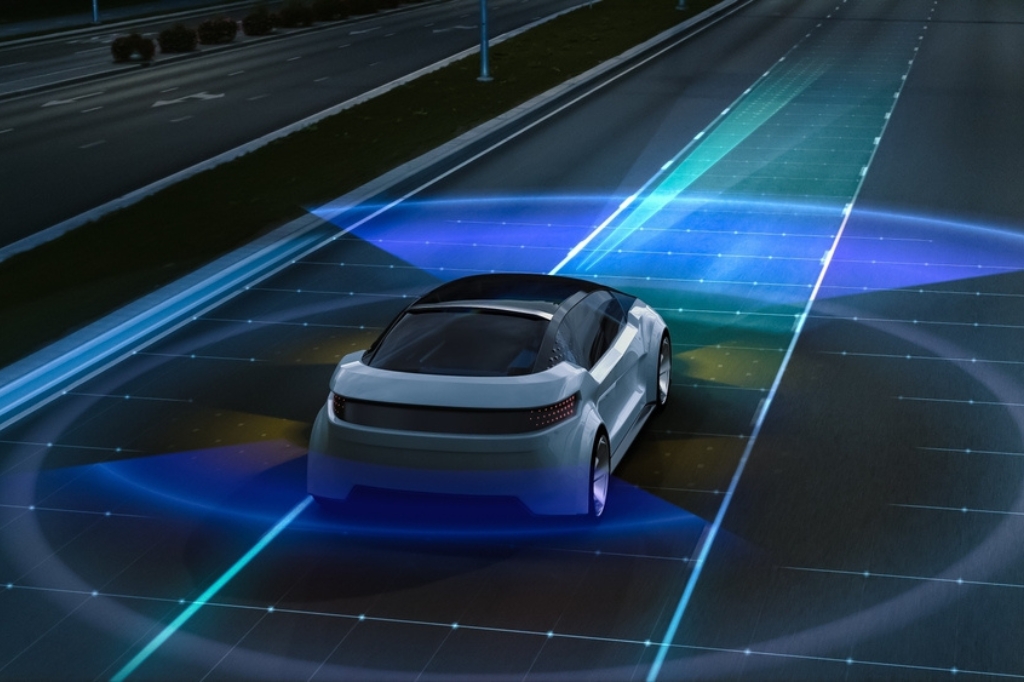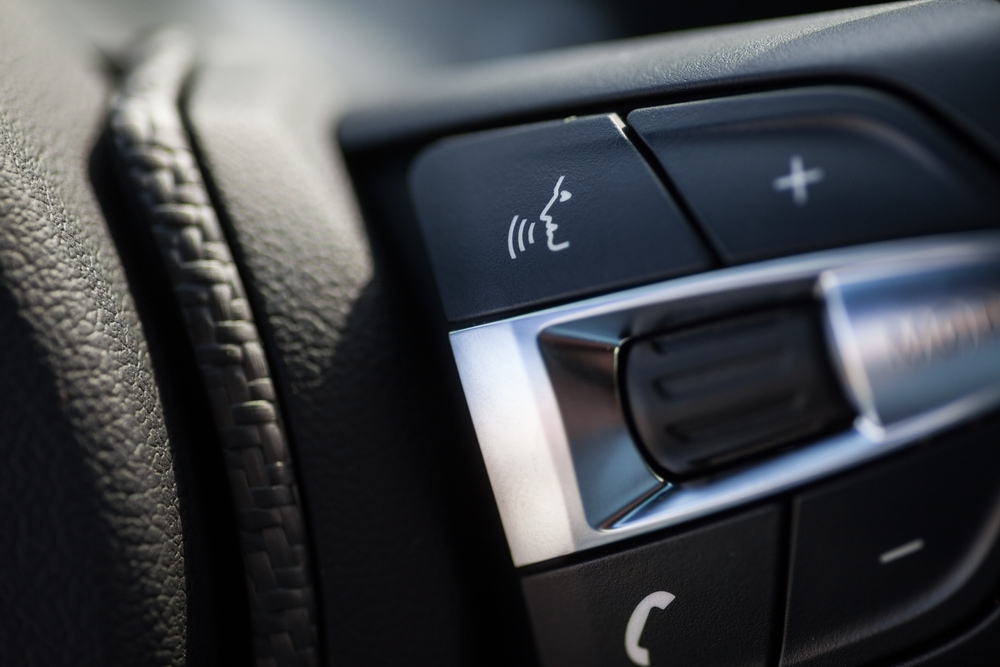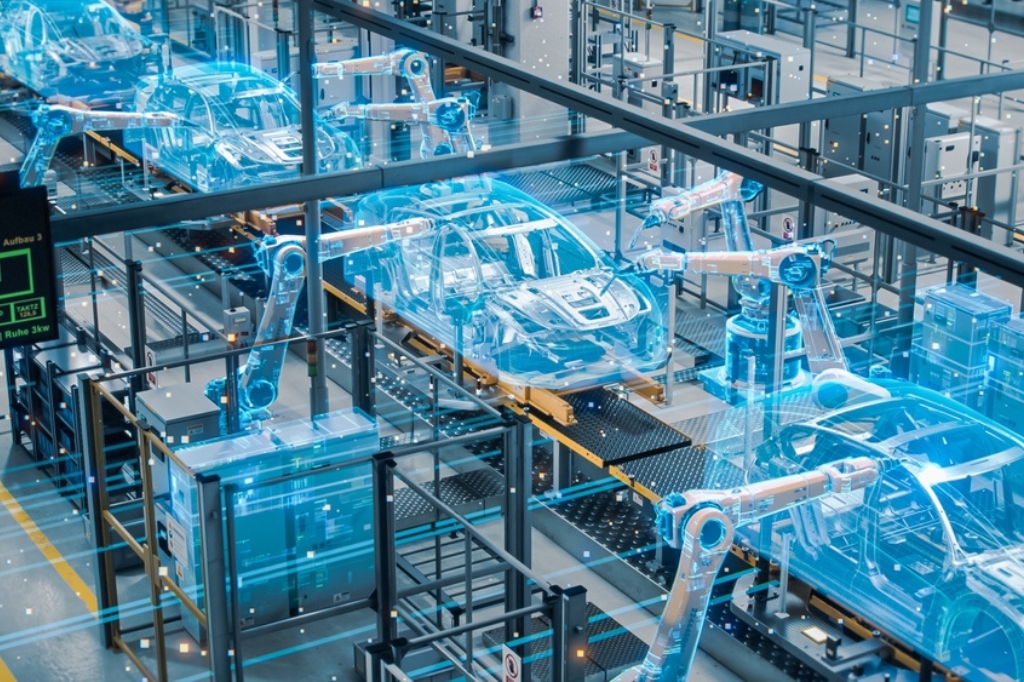The growth of AI in the automotive industry
By SG Fleet | 09 January 2024

The future is here, and it's on wheels. In today's tech-driven world, artificial intelligence (AI) isn't confined to the realms of science fiction anymore. It's already transforming numerous industries, and the automotive sector is no exception. From driver support to personalised in-car experiences, AI in the automotive industry is a new reality!
Driving innovation with AI in the automotive sector
In recent years, we've seen a significant shift in the automotive industry towards AI-powered solutions. Companies are harnessing AI's ability to revolutionise how we drive and interact with our vehicles. The goal? To make driving safer, more efficient, and more personalised.
Take Tesla, for example. Known for its cutting-edge technology and innovative designs, Tesla has been at the forefront of AI integration in cars. Their AI interior camera is a game-changer for driver monitoring and accident prevention. It is an excellent demonstration of how AI can enhance safety measures in the new car sector.
Then there's Porsche, who are using AI differently – to enhance the customer experience. They've developed a recommendation engine (powered by AI) that offers personalised vehicle configurations based on the customer's preferences and habits. It's a prime example of how AI in the automotive industry can offer a level of personalisation that would have been hard to imagine in previous years.
AI-powered voice assistants

One of the most noticeable implementations of AI in cars is voice assistance. They’re not just about playing your favourite songs or guiding you to your destination; they're about creating a seamless, intuitive interaction between the driver and the vehicle.
Mercedes Benz's MBUX infotainment system, for instance, uses AI to provide an interactive and intuitive in-car voice assistant. It learns from the driver's behaviour and adapts to their needs, making it a highly personalised and user-friendly feature.
How is AI impacting car production?
Design
In the design phase, AI can predict which features will be most beneficial to consumers, reducing guesswork and increasing efficiency. This means the cars we drive are more likely to have the characteristics we genuinely want and need.
Manufacturing
During manufacturing, AI helps the automotive sector to streamline the process. It can spot potential issues before they become costly errors. It's like having an extra set of eyes that never get tired or overlook details. This leads to higher quality vehicles and fewer recalls.
Marketing and Sales
By analysing consumer trends and behaviours, AI can help automotive companies tailor their marketing strategies effectively. This means consumers receive personalised messages and offers, making their interaction with the brand more rewarding.
After-Sale Service
Through predictive maintenance, AI can alert drivers about potential issues before they escalate into major problems. The savings in time and money that this creates are significant, as well as enhancing the overall ownership experience.

The future of AI-powered autonomous driving
A report published by McKinsey found that the transformative power of AI-powered autonomous driving (AD) on the passenger car market is profound. It could potentially revolutionise not only transportation but also consumer behaviour and societal norms. Predictions suggest that by 2035, AD could generate a staggering $300-$400 billion (£237-£316 billion) in revenue for the auto industry.
Are there challenges with AI-powered AD?
It’s true the journey to AD adoption isn’t without challenges. Regulatory support is crucial, and both automakers and suppliers need to devise innovative business strategies to succeed in this new landscape. Safety concerns must also be addressed to gain consumer trust and acceptance.
The role of AI in AD
AI-based systems are at the heart of AD technology, driving the need for software-centric development processes. Simulation and validation capabilities play a huge role in ensuring that the approaches are reliable and safe. To stay competitive, equipment managers need robust software development either in-house or in partnership with leading tech companies.
AI in the automotive fleet industry
Beyond its use in the new car sector, AI is making waves in commercial fleet innovations, too. It can keep drivers safer, enhance productivity, and improve fleet management.
Safety
By using advanced driver-assistance systems (ADAS), AI can help prevent accidents before they occur. It can provide a system that alerts drivers to possible risks even to take control in critical situations. Implementing advanced safety measures also helps to build a culture of safety within your fleet, which can pay dividends.
Efficiency
AI can optimise routes in real-time, considering factors like traffic, weather, and road conditions. This means your drivers can avoid delays and reach their destinations faster. And time saved is money saved, right?
Management
As many readers will know, managing a fleet is no small task. There’s a lot of data to handle – fuel usage, driver behaviour, vehicle health and more. AI can process this data and provide insightful analytics, helping you make informed decisions. If you want to find out more about how automation can benefit fleet management, take a look at our article dedicated to that very topic..
Stay up to date on the latest trends
If you're a professional in the fleet industry or just a car enthusiast and you want to keep your finger on the pulse, then we can help you. Stay on top of the latest updates by visiting our news page, where we post regular content at the forefront of the automotive sector. We cover everything from driver safety to market trends in the used car sector and more.
Alternatively, if you're looking for specific, innovative solutions for your fleet, visit our dedicated Fleet Innovation or Fleet Management pages for more information. Our team is always on hand to support you with any queries, so don't hesitate to get in touch.
Further reading
- The Acceleration in EV Adoption
- Connected Fleets: Exploring the Benefits of Vehicle to Everything Communication
- How Better FleetInsights Can Help Your Approach to Risk Management


.png)


.png)
.png)
.png)